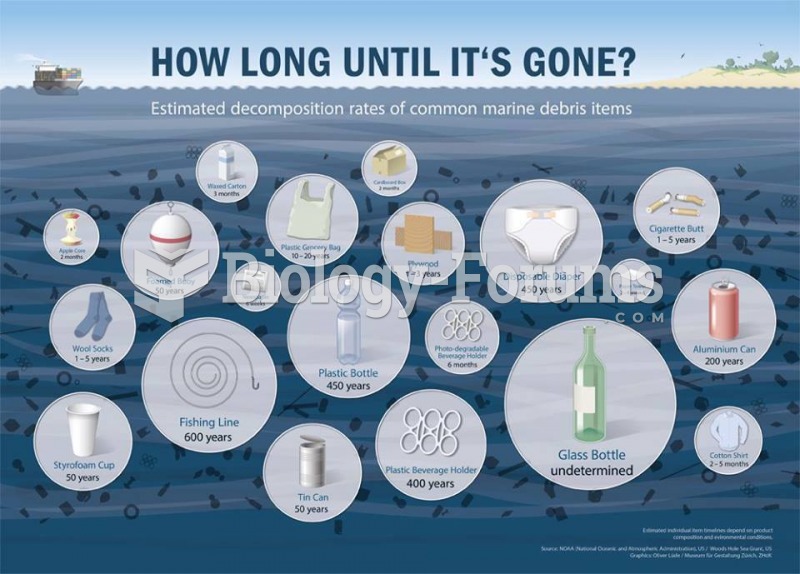Answer to Question 1
Currently all commercial nuclear power plant spent fuel is contained in on-site storage ponds. High-level radioactive waste from spent fuel and low-level wastes, such as tools and clothing, need to be isolated from the environment. One of the by-products of fission is plutonium, which has a half-life of 24,000 years. Because it is necessary to isolate radioactive substances for 20 half-lives, plutonium needs to be safely stored for 480,000 years. No long-term disposal site exits. The site being developed by the U.S. government, Yucca Mountain, is surrounded by a great deal of controversy. Some of the concerns expressed about the Yucca Mountain facility include nearby earthquake faults; a geologically active volcano; rock formation above the storage rooms that would allow rainwater to permeate the wastes, resulting in groundwater contamination; and the need to ship spent nuclear fuel across the country. (The vast majority of nuclear power plants are in the eastern portion of the country, whereas Yucca Mountain is in Nevada.)
In July 2002, President George W. Bush signed a resolution (passed by Congress) voiding a veto by Nevada's governor that had attempted to block further development at the site (Yucca Mountain). The Yucca Mountain facility has officially been designated to be the nation's nuclear waste repository. The site could begin receiving wastes from commercial facilities all over the country in the year 2018, according to the latest Department of Energy estimate. Nevada's governor and congressional delegation vow to continue their fight in the courts. In the meantime, the NRC has approved a plan by a private consortium to establish an interim site for storage of dry casks on the Skull Valley Goshute Reservation in Utah. Private Fuel Storage, the company that will build the facility, argues that the deal will remove a major obstacle to further growth of the nuclear industry (and greatly benefit the Goshutes tribe). Predictably, Utah's governor and congressional delegation are doing everything they can to prevent this from happening. Interestingly, an underground storage facility in New Mexico, the Waste Isolation Pilot Plant, has been receiving shipments of highly radioactive wastes from nuclear weapons facilities since 1999, with no apparent problems.
Answer to Question 2
Adaptations including those that allow an organism to cope with climatic changes and changes of other abiotic factors; adaptations for obtaining food and water or for obtaining nutrients, energy, and water; adaptations for escaping from or protecting against predation; adaptations of disease resistance; adaptations for finding and attracting mates or for pollinating and setting seed; and adaptation for migrating or dispersal of seeds could allow for selective survival of individuals.







